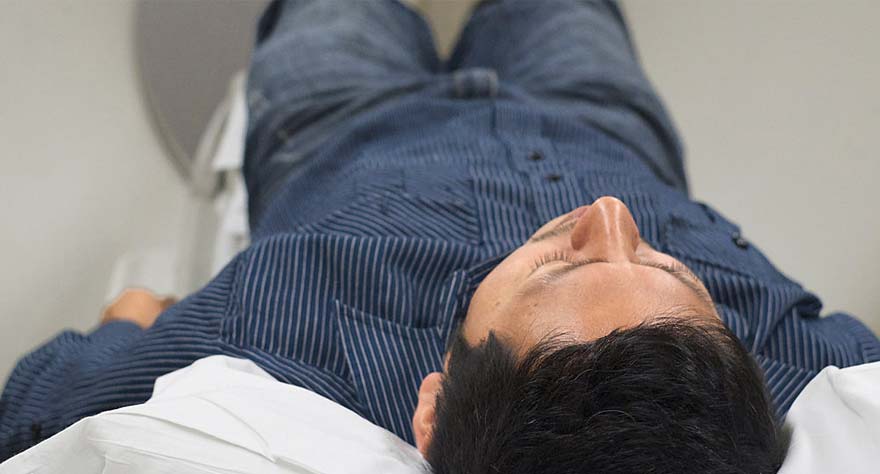
Heart disease's controversial treatments make for a stirring and informative documentary.

Heart disease's controversial treatments make for a stirring and informative documentary.
Medical propaganda fueled by politics, money, insurance, doctors, and quacks is as common as car commercials in the U.S. The American public is bombarded with what they should or shouldn’t do about their health. Eat eggs they’re healthy. Stay away from eggs they have cholesterol. Shun bread, embrace the gluten-free life. Gluten-free is a fallacy. Get this procedure, see this specialist, explore homeopathy, eat local, go vegan, etc. etc. etc. At this point it’s practically white noise. There is of course one thing no one can argue with: the number one killer in America is heart disease and it’s far more preventable than cancer or accidents. Narrated by Gillian Anderson and directed by Patrick Forbes, The Widowmaker explores this unfortunate statistic in terms of progress in medicine around heart disease, calling out those who have allowed pharmaceutical companies and personal interests to delay the progress of good medicine. It’s a serious and informative documentary, but with its slight penchant toward sensationalism it leaves one wondering how different it is from the proclamations we’re already so used to.
Interspersed throughout The Widowmaker are 9-1-1 calls of people trying to help their spouse or neighbor through heart attacks. Over 700,00o people a year have heart attacks, and the film interviews a few survivors, including Larry King, as well as the spouses and children of people who died of heart attacks, most of them with almost nothing to indicate they had heart disease. The personal narratives bring some much-needed emotion and personal narrative to what would otherwise be a back and forth among medical professionals around the proper way to pre-treat those at risk of heart disease. Even if it is one club of medical professionals pitted against another, the film does at least give everyone a shot.
Julio Palmaz, the man responsible for inventing the balloon-expandable stent reminisces in the garage where he first formed the idea. His invention is given proper accolade and the statistics on how many lives have now been saved due to the option of a heart stent are irrefutable. The film moves on to a doctor in New York who performs thousands of heart stents every year, more than 20 in a day. He works three days a week, makes over 3 million a year, and happily jokes with his unconscious patients that they will be in and out in minutes. Progress in modern medicine, or a cushy and expensive procedure that keeps doctors and medical equipment companies afloat? Thus begins the shift in the film in documenting the not at all new procedure of coronary calcium scanning. Whereas a stent will help a person who catches their heart disease while at the beginning of a heart attack or shortly before one is likely to occur, a calcium scan, if given early, would allow a person to see the total issues of their heart and work toward fixing it. Not with the patchwork agility of the stent, but with a more overarching and long-term focus.
Yet another case of quick fixes verses long-term health. Of course the discussion around health disease is more nuanced than a simple test, diet and exercise are pivotal, but if people had a wider spread knowledge of their options for preventive care the death rate could be cut down significantly. But of course the public needs their “9 out of 10 doctors agree” statements and publicity in order to embrace courses of action. It looks like calcium scanning is finally getting the recognition it needs, but had it started in the early ’90s when many were advocating for it, the number of lives saved would be staggering.
The film is mostly hospital-style clean with aesthetics, strong imagery including an actual heart beating and the usual winding highways that draw the easiest metaphor for the intricacies of the cardiovascular system are included in abundance. Gillian Anderson’s strong voice (and a nice touch using a female to offset what seemed like 100% male doctors) brings gravitas and sincerity to the film’s deluge of facts.
The Widowmaker is thoroughly convincing, and while it clearly advocates for calcium scanning it allows for a full conversation providing advice from a number of esteemed cardiologists with varying view points. Any lay person would do well to do their own research of course, but the information is compelling. After seeing the film a sudden urge for a salad and a walk around the block seems entirely called for.